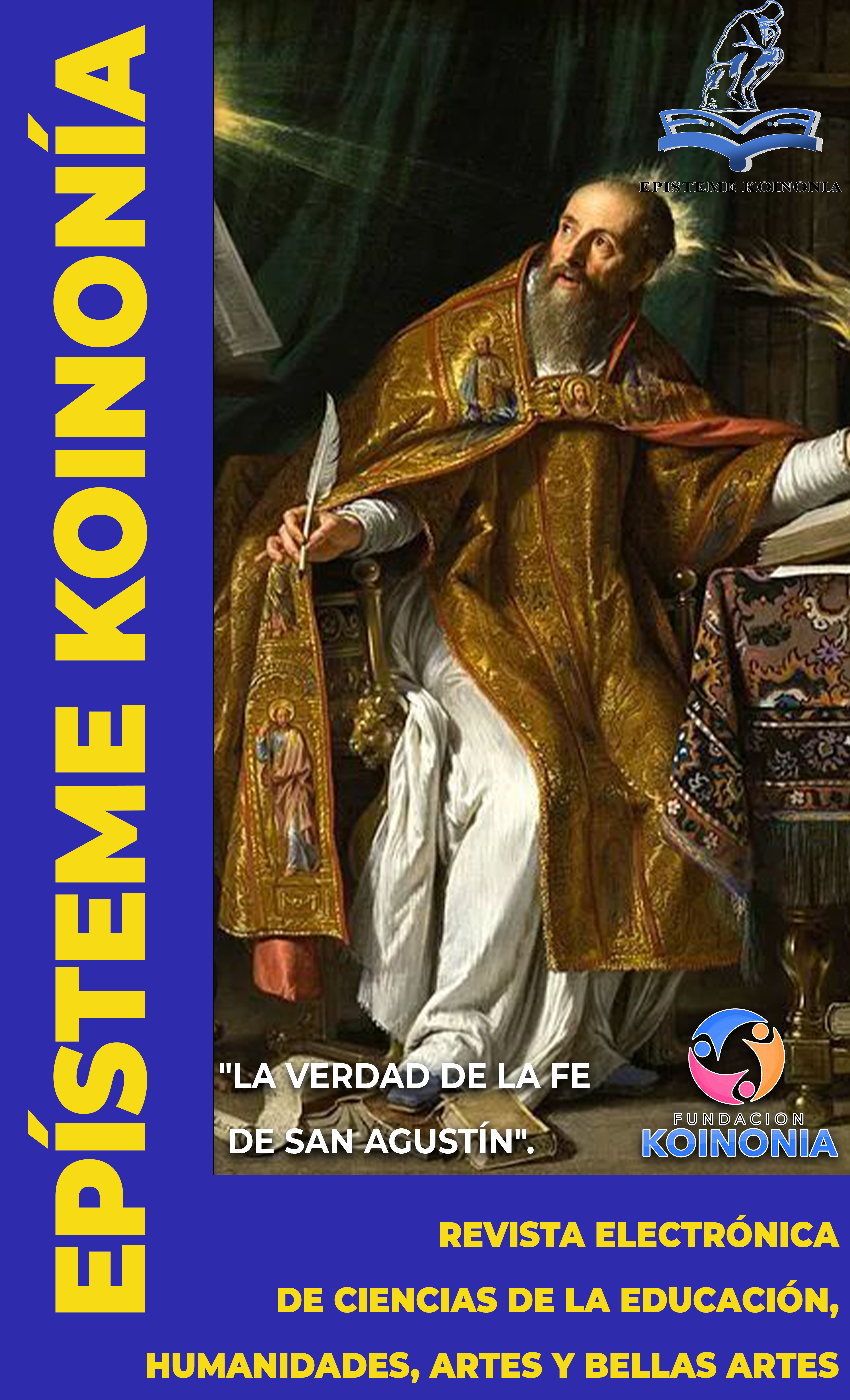Artificial intelligence as a tool to revitalize teaching processes in the Venezuelan educational system
DOI:
https://doi.org/10.35381/e.k.v7i14.4363Keywords:
Artificial intelligence in education, educational system, artificial intelligence, revitalization, teaching processes, . (UNESCO Thesaurus).Abstract
The objective of this study was to analyze artificial intelligence as a tool to revitalize teaching processes in the Venezuelan Educational System. Methodologically, the positivist paradigm was assumed with a quantitative approach and a non-experimental, descriptive and transversal design. Observation and survey were used as techniques, with a Likert-type scale questionnaire, which obtained a reliability value of 0.94 when applying the Cronbach's Alpha formula. The results were presented grouped in two tables; the first one corresponding to the Basic Education subsystem qualified as little present in the teaching processes, while the second one gathered the data of the University Education subsystem showing artificial intelligence moderately present in the teaching processes. From this perspective, it was concluded that reflective processes could optimize educational processes through the design of innovative proposals, the use of adaptive platforms and the incorporation of new technologies.
Downloads
References
Asamblea Naciona Constituyente. (1999). Constitución de la República Bolivariana de Venezuela. Artículo 108. [Título III]. Gaceta Oficial de la República Bolivariana de Venezuela 5453. (Extraordinario) marzo 24, 2000. https://n9.cl/m0nkz
Ayuso, D., y Prudencia, E. (2022). La Inteligencia Artificial como recurso educativo durante la formación inicial del profesorado. RIED. Revista Iberoamericana de Educación a Distancia, 25(2), 347-362. https://n9.cl/vfdhg
Bolaño, M., y Duarte, N. (2024). Una revisión sistemática del uso de la inteligencia artificial en la educación. Revista Colombiana de Cirugía, 39(1), 51-63. https://n9.cl/zhfn1h
Briceño, L., y Barrios, R. (2022). Tecnologías, educación venezolana, automatismos y creciente virtualidad: matices de una nueva era. Revista de Ciencias Sociales (Cr), II(176), 29-48. https://n9.cl/8jbjsy
Caballero, F., y Brítez, R. (2024). Inteligencia Artificial en el mejoramiento de la enseñanza y aprendizaje, Ministerio de Educación y Ciencias. ACADEMO Revista de Investigación en Ciencias Sociales y Humanidades, 11(2), 99-108. https://n9.cl/0u8iw
Carbonell, C., Burgos, S., Calderón, D., y Paredes, O. (2023). La Inteligencia Artificial en el contexto de la formación educativa. Episteme Koinonía. Revista Electrónica de Ciencias de la Educación, Humanidades, Artes y Bellas Artes, 6(12), 152-166. https://n9.cl/skqs7
Chamoli, A., y Patiño, L. (2024). Impacto de la inteligencia artificial en la educación jurídica latinoamericana. Aula Virtual, 5(12), e342. https://n9.cl/el6l6f
Duque, J. (2024). Reflexiones sobre el uso de la inteligencia artificial con enfoque humanista en contextos educativos. Revista Arbitrada Interdisciplinaria Koinonía, 9(17), 154-167. https://n9.cl/1jw1r
Huerta, S., y Zavala, J. (2023). La Inteligencia Artificial y el Contexto de la Docencia en México. Revista Tecnológica-Educativa Docentes 2.0, 16(1), 49-56. https://n9.cl/j8qytw
Isea, J., Duque, J., Piña, L., y Atencio, R. (2024). Análisis de la Inteligencia artificial en la transformación de la enseñanza y aprendizaje educativa. Conrado, 20(100), 179-185. https://n9.cl/o6w57n
Labrador, J. (2023). Implicaciones éticas de la Inteligencia Artificial en las Ciencias de la Educación. Revista Arbitrada Interdisciplinaria Koinonía, 8(16), 1-3. https://n9.cl/0g050
López, L. (2020). Aprendizaje de la tecnología en la etapa escolar venezolana. Revista Scientific, 5(15), 350-361. https://n9.cl/cmop2
Organización de las Naciones Unidas para la Educación, la Ciencia y la Cultura [UNESCO]. (2019). La Inteligencia Artificial en Educación. https://n9.cl/027pk
Otero, A., Rivera, W., Pedraza, C., y Canay, J. (2019). Tic para la educación: sistema adaptativo basado en mecanismos de aprendizaje automático para la apropiación de tecnologías en estudiantes de educación media. Telos, 21(3), 526-543. https://n9.cl/15qcxc
Padilla, A., Gámiz, V., y Romero, M. (2020). Evolución de la competencia digital docente del profesorado universitario: incidentes críticos a partir de relatos de vida. Educar, 56(1), 109-27. https://n9.cl/ywa0ng
Parra, J. (2022). Potencialidades de la Inteligencia Artificial en Educación Superior: Un enfoque desde la personalización. Revista Tecnológica-Educativa Docentes 2.0, 14(1), 19-27. https://n9.cl/fzcna
Sánchez, M. (2023). La inteligencia artificial como recurso docente: usos y posibilidades para el profesorado. Revista EDUCAR, 60(1), 33-47. https://n9.cl/9ajpqp
Published
How to Cite
Issue
Section
License
Copyright (c) 2025 Jennifer Andreina Duque-Rodríguez, Lenys Senovia Piña-Ferrer, Josía Jeseff Isea-Argüelles

This work is licensed under a Creative Commons Attribution-NonCommercial-ShareAlike 4.0 International License.
CC BY-NC-SA : Esta licencia permite a los reutilizadores distribuir, remezclar, adaptar y construir sobre el material en cualquier medio o formato solo con fines no comerciales, y solo siempre y cuando se dé la atribución al creador. Si remezcla, adapta o construye sobre el material, debe licenciar el material modificado bajo términos idénticos.
OAI-PMH URL: https://fundacionkoinonia.com.ve/ojs/index.php/epistemekoinonia/oai







